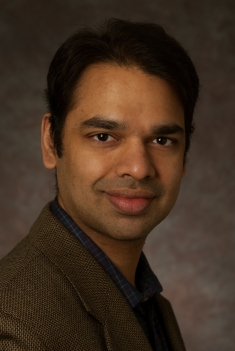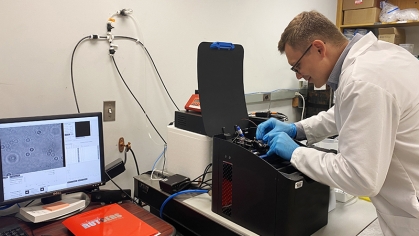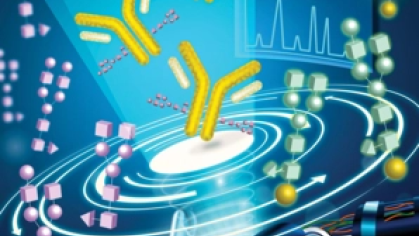CBE Professor Rohit Ramachandran Leads Rutgers-Funded Collaborative Projects
Projects aim to enhance drug manufacturing process control and optimization
In January, Rutgers Cyberinfrastructure and AI for Science And Society (CASS) awarded a School of Engineering team led by Primary Investigator (PI) Rohit Ramachandran, a professor in the Department of Chemical and Biochemical Engineering (CBE) $25,000 for their project “An AI-Enabled Digital Twin for Bio-Pharmaceutical Manufacturing.”
Ramachandran’s cross-disciplinary School of Engineering team includes CBE associate professor Shishir Chundawat; associate professor of biomedical engineering (BME) Adam Gormley; Grace Guo, an associate professor of industrial and systems engineering (ISE); professor of mechanical and Yuebin Guo, a professor of mechanical and aerospace engineering (MAE).

“This program aims to integrate AI-driven machine learning models with higher fidelity process models, lab/plant data and high-performance computing capabilities to develop more accurate and computationally efficient process models for improved process control and optimization of bio-pharmaceutical manufacturing processes,” Ramachandran explains.
In May, Rutgers Research Council’s Collaborative Multidisciplinary Awards program – which funds research on shared projects with complex intellectual and societal requirements– awarded a second team led by Ramachandran $25,000 for their project, “Toward Next-Generation Intelligent Pharmaceutical Drug Product Manufacturing for Efficient Patient Healthcare.” This collaborative SoE team also includes Grace Guo, Yuebin Guo, as well as Jorge Ortiz, an associate professor of electrical and computer engineering. (ECE).
While the Rutgers Research Council award shares the same overall aim of enhancing drug manufacturing process control and optimization with the CASS-funded project, Ramachandran notes that it is “focused on solid-dose tablet manufacturing, which is a different process with a different set of challenges.”
Promoting Innovative Solutions for Industry
As PI on both yearlong projects, Ramachandran is leading and coordinating the efforts across the various engineering disciplines from faculty whose expertise includes everything from physics-informed machine learning and optimization, biosensing, AI, and machine learning, to AI-enabled manufacturing, biomanufacturing and sustainability, and met-learning and cyber-physical systems.
According to Ramachandran, such cross-disciplinary collaborations are beneficial precisely because they foster the integration of diverse areas of expertise – such as AI, engineering, and bio-pharmaceutical manufacturing – to address complex challenges effectively.
“They also promote innovation by combining unique perspectives and methodologies, leading to more robust solutions for industry,” he adds. “Collaborations between fields are expected to become more common in the future, as they are essential for driving innovation and solving multi-faceted problems.”
Ramachandran is especially excited by the potential of the CASS project and the Rutgers Research Council project to pioneer intelligent, autonomous biomanufacturing systems and pharmaceutical production respectively.
He states that “These projects represent the journey toward cutting-edge AI applications and engineering. And their success could lead to transformative advancement in manufacturing, ultimately resulting in more efficient, scalable, and sustainable processes.”


